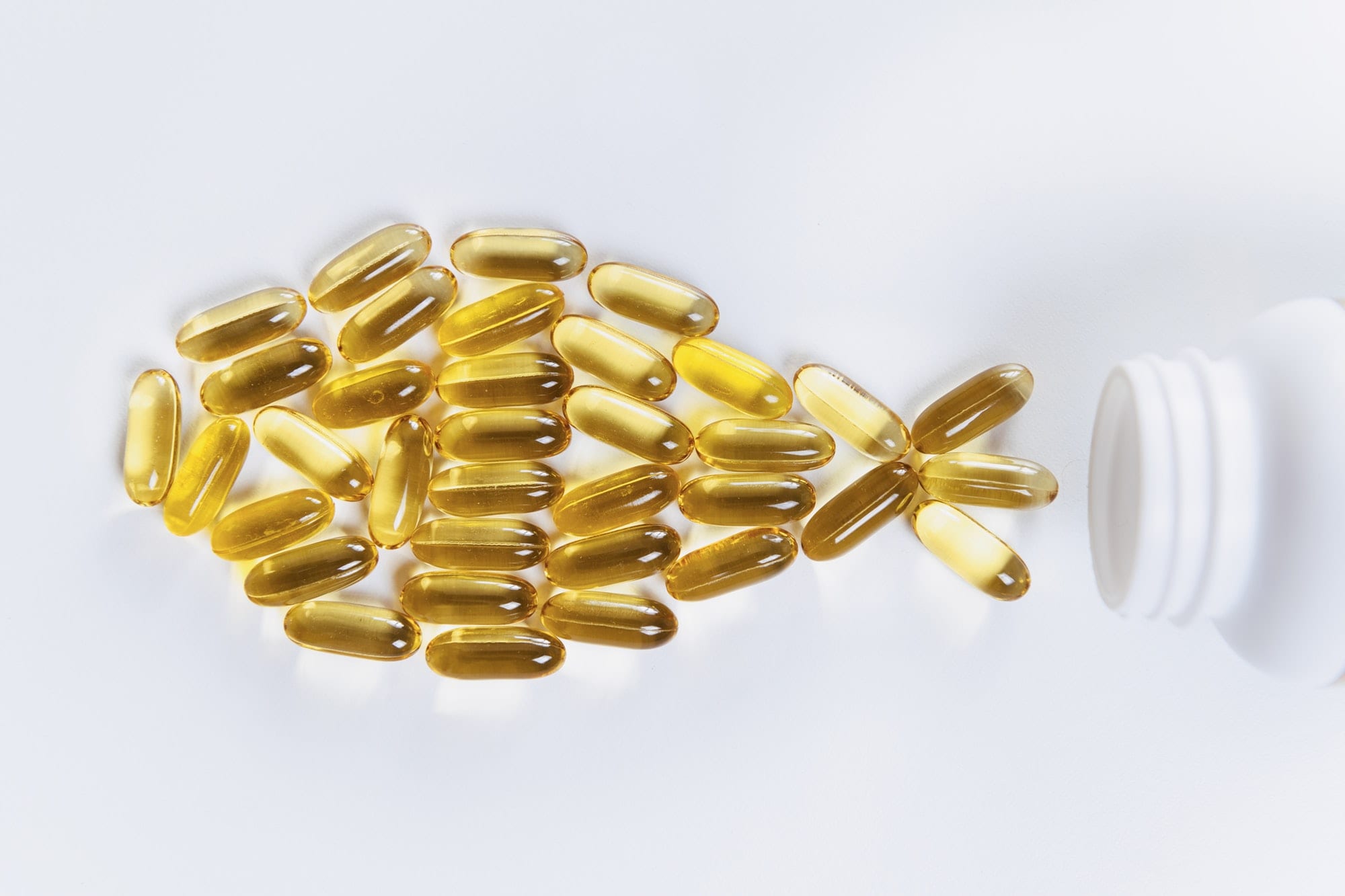The Comprehensive Guide to the Benefits of Omega-3 Fatty Acids for Vegans
 Posted On
Posted On
introduction
Omega-3 fatty acids are a group of essential fats that offer numerous health benefits, from supporting heart health to improving brain function. While fish and fish oil supplements are commonly associated with omega-3s, it’s essential to know that there are vegan-friendly sources of these essential fatty acids. In this comprehensive guide, we will explore the various advantages of omega-3 fatty acids for vegans, their dietary sources, recommended intake, and potential impact on key aspects of health.
Understanding Omega-3 Fatty Acids
Omega-3 fatty acids are a group of polyunsaturated fats known for their essential role in human health. They consist of three primary types:
- Alpha-linolenic acid (ALA): ALA is the primary plant-based omega-3 fatty acid and is considered an essential nutrient, meaning it must be obtained through the diet since the human body cannot synthesize it efficiently.
- Eicosapentaenoic acid (EPA): EPA is commonly found in marine sources like fatty fish and is known for its anti-inflammatory properties.
- Docosahexaenoic acid (DHA): DHA is also found in fatty fish and is vital for brain and eye health, particularly during pregnancy and early childhood.
Vegans primarily rely on ALA-rich sources to meet their omega-3 needs.
Benefits of Omega-3 Fatty Acids for Vegans
Heart Health
Omega-3 fatty acids, particularly ALA, offer significant benefits for heart health. They help reduce inflammation, lower blood pressure, and improve cholesterol levels. These effects can lead to a reduced risk of heart disease, including heart attacks and strokes.
Brain Function
Omega-3 fatty acids, especially DHA, are crucial for optimal brain function. They are key structural components of brain cell membranes and play a vital role in cognitive function, memory, and mood regulation. DHA, in particular, is important for brain development during pregnancy and early childhood.
Eye Health
DHA is a major component of the retina, and it plays a crucial role in maintaining good vision. A diet rich in omega-3 fatty acids may reduce the risk of age-related macular degeneration, a common eye condition.
Inflammation and Immunity
Omega-3 fatty acids have potent anti-inflammatory properties, making them beneficial for individuals with chronic inflammatory conditions, such as rheumatoid arthritis. They also support a healthy immune system, helping the body defend against infections and illnesses.
Mood and Mental Health
Research has linked omega-3 fatty acids to mood regulation and mental well-being. Adequate intake is associated with a lower risk of depression and anxiety. Some studies suggest that omega-3 supplements can help manage symptoms in individuals with existing mood disorders.
Skin Health
Omega-3 fatty acids contribute to skin health by helping maintain moisture and integrity. They are commonly used to manage skin conditions like psoriasis and eczema.
Pregnancy and Early Childhood
DHA, in particular, is crucial during pregnancy and breastfeeding. It supports the development of the baby’s brain and eyes. Pregnant and breastfeeding vegans may benefit from algae-based DHA supplements to ensure adequate intake.
Cancer Prevention
Emerging research suggests that omega-3 fatty acids, especially EPA and DHA, may play a role in cancer prevention. They appear to inhibit the growth of cancer cells and promote apoptosis (programmed cell death) in these cells.
Weight Management
Some studies suggest that omega-3 fatty acids may aid in weight management by improving the body’s ability to burn fat and helping reduce appetite.
Dietary Sources of Omega-3 Fatty Acids for Vegans
While marine sources like fatty fish and fish oil supplements are rich in EPA and DHA, vegans primarily rely on ALA-rich plant sources. Here are some key dietary sources of omega-3 fatty acids for vegans:
- Flaxseeds: Flaxseeds and flaxseed oil are among the richest sources of ALA. They can be incorporated into smoothies, oatmeal, or used as an egg substitute in vegan baking.
- Chia Seeds: Chia seeds are another excellent source of ALA. They can be incorporated into puddings, overnight oats, or sprinkled on salads and yogurt alternatives.
- Hemp Seeds: Hemp seeds are a versatile source of ALA and can be added to smoothies, granola, or used as a salad topping.
- Walnuts: Walnuts contain a significant amount of ALA and can be eaten as a snack or added to various dishes, including oatmeal, salads, and baked goods.
- Canola Oil: Canola oil is a cooking oil rich in ALA and can be used for sautéing, baking, and salad dressings.
- Leafy Greens: Some leafy greens like spinach and kale contain small amounts of ALA.
- Algal Oil Supplements: Algal oil supplements provide a direct source of vegan DHA and are a convenient option for those who may have difficulty meeting their omega-3 needs through dietary sources alone.
Recommended Intake
The recommended daily intake of omega-3 fatty acids, particularly ALA, varies by age, sex, and life stage. While there is no specific Recommended Dietary Allowance (RDA) for ALA, it is generally recommended that adults aim for at least 2.2 grams of ALA per day. For those who want to ensure optimal DHA intake, algal oil supplements can provide around 200-300 milligrams of DHA per day.
Individual requirements may vary, and it’s advisable to consult with a healthcare professional or registered dietitian to determine the appropriate intake, especially if you have specific health concerns or dietary restrictions.
Risks and Considerations
While omega-3 fatty acids are beneficial for health, excessive intake should be avoided. High doses of omega-3 supplements can lead to an increased risk of bleeding, interfere with blood clotting, and cause gastrointestinal issues. Therefore, it’s important to consult with a healthcare provider before starting any supplementation.
Additionally, it’s important for vegans to maintain a well-balanced diet that includes other essential nutrients like vitamin B12, iron, and calcium to support overall health. Nutritional deficiencies can have adverse effects on health, so it’s essential to consider a holistic approach to nutrition.
Conclusion
Omega-3 fatty acids are essential for overall health, and vegans can harness their benefits by incorporating ALA-rich plant sources into their diet and, if necessary, algal oil supplements. These essential fats offer numerous advantages, from supporting heart and brain health to reducing inflammation and improving mood.
Understanding the importance of omega-3 fatty acids for vegans and making informed dietary choices is key. By adopting a well-balanced vegan diet and seeking guidance from healthcare professionals when necessary, vegans can optimize their health, reduce the risk of various health conditions, and enjoy the many benefits of these valuable nutrients.
- Unlocking Tranquility: My Journey with Glowbar London’s CBD Oils - March 30, 2024
- CBD Oil By 43cbd-Unveiling the Finest CBD Oil A Comprehensive Review - March 11, 2024
- The Comprehensive Guide to the Benefits of Lion’s Mane Functional Mushrooms - October 31, 2023



